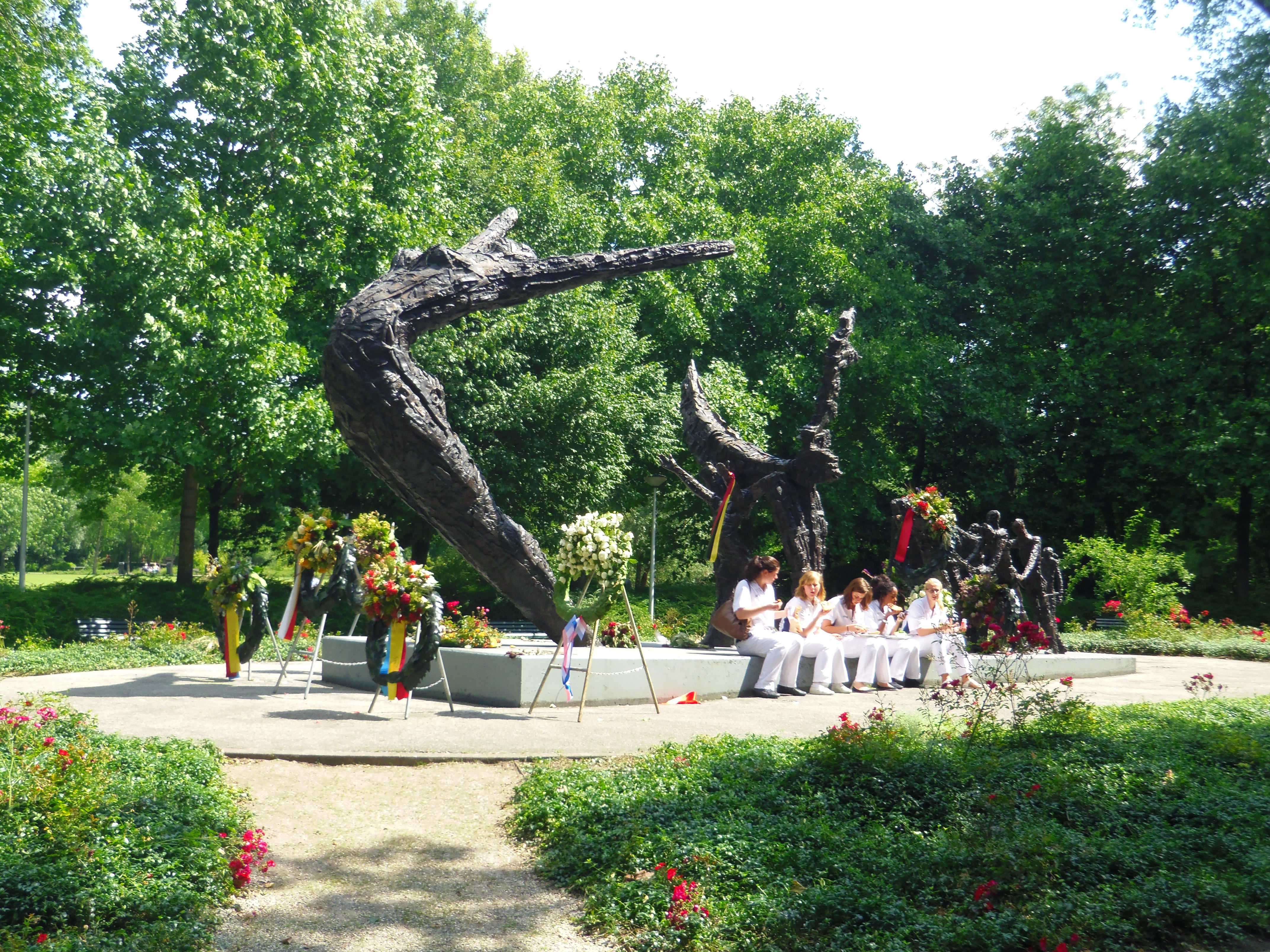Hey everyone, so as I mentioned, I was out of town this past week. I am in fact still out of town, but at least I am back in the country. Where was I, you ask? Well, as the title probably tipped you to, I was in Amsterdam, Netherlands. I had two poster presentations accepted at the IASLC’s World Conference on Lung Cancer. This is kind of a big deal, career-wise, since it’s a high-profile venue for me to showcase not only my work, but myself as a researcher.
While I was there for work, I did manage to find time to explore the city and see some things that I think you might find interesting. I’m going to try and summarize as much as I can in one post, but it’s probably going to be a long one.
The City of Amsterdam
Amsterdam is the capital city of the Netherlands, and has a long history that relates predominantly to two things: land reclamation and banking. See, the Netherlands used to be largely under water, so the Dutch used windmills to pump water away from the land, creating a harbour. They dug canals that surround the city, allowing buildings to be constructed. They used materials exploited from colonial territory to establish Europe’s first stable banking system. It’s not really an exaggeration to say that Europe would not exist in the absence of the financial stability that was afforded by Dutch banking institutions.
Of course, one has to remember that when we say “the Dutch” dug canals and “the Dutch” exploited resources, we are referring predominantly to Dutch slave owners. The labour responsible for the human-made miracle that is Amsterdam was stolen from Africans, Indonesians, and Caribbean aboriginals. It is certainly no exaggeration to say that Europe was built on the backs of slaves. This is me at a monument to those slaves in Oosterpark on the east side of the city:
There is a nearby museum devoted to exploring and discussing the slave trade. Of course I couldn’t pass up the opportunity, and I went. Unfortunately (for me, anyway), the entire exhibit was in Dutch. Dutch is actually a remarkably easy language to learn, provided you speak English and have even just a little German. So, while I missed some of the meaning, I did manage to catch most of the general idea of the displays:
The people of Amsterdam
I have never been to Europe before, so I wasn’t sure what to expect. One of the first things I noticed about people in Amsterdam is that they’re all really good-looking. There were stunningly gorgeous women everywhere I went – riding bicycles, running, working, pushing strollers with good-looking kids in them. It was like walking through some kind of eugenicist’s wet dream.
The next thing I noticed was the sheer amount of race mixing happening. In addition to the fact that there was a large proportion of black people in the populace, I noticed that there wasn’t any kind of “sticking with our own” going on, at least not along race lines. Groups of teenagers, kids, adults, rich, poor, young and old – all sprinkled with people from around the globe. It was pretty amazing to see, especially coming from a place where despite our vaunted tolerance we don’t see a great deal of heterogeneity in peer groups.
There were also a number of interracial couples and people who were clearly (like me) the product of those couplings. I was expecting that everyone was going to confuse me for American because of my skin colour. That definitely wasn’t the case – they took me as Dutch until I began speaking. Then it was my accent rather than my appearance that got them to make that conclusion. Everyone was still very friendly though – maybe the stereotype about the way Europeans treat Americans is a bit out of date.
Life in Amsterdam
I was told by people who have been before that the way to get around Amsterdam is by bicycle. Everyone bikes here. All of the streets have separate lanes for bikes, and bike traffic has right of way. Since it’s a small city and parking is a motherfucker, biking is definitely the most convenient way to get from A to B. While the conference provided me with a transit pass, I only used it once.
Of course Amsterdam is famous for its Red Light District, where prostitution is legalized. I checked it out while I was there (of course) – it was pretty exciting and definitely worth seeing, but I’m not much of a sex tourist. Most of the stuff there is only appealing in the sense that you’ll have a great story to tell afterward. Plus, being there on my own meant that if I wanted to check out some of the more exciting shops, I’d have to go in on my own. That crosses a line in my mind from ‘hilarious curiosity’ to ‘full perv’. Wasn’t ready to make that jump yet.
The other thing that is legal in Amsterdam is marijuana. I live in Vancouver, where we have a sort of “hear no evil, smoke no evil” policy. I wasn’t altogether that fired up to smoke pot, since the novelty is blunted by how readily available it already is. I did, however, try some space cake:
I definitely recommend trying it if you haven’t before, but I also definitely recommend only eating half! That’s all I think I’m comfortable saying about the whole experience.
Concluding thoughts
I really enjoyed being in Amsterdam, and would definitely go back again. The city seems to be inhabited exclusively by happy people, who are also really attractive. Despite the rich heritage and beautiful scenery, it’s important not to forget the country’s history with slavery. Understanding that history is key to understanding the contemporary situation, just as it is here in Canada.
Like this article? Follow me on Twitter!




